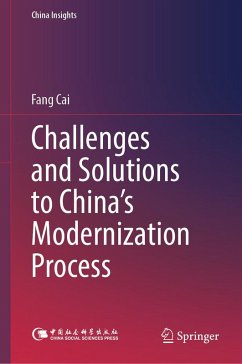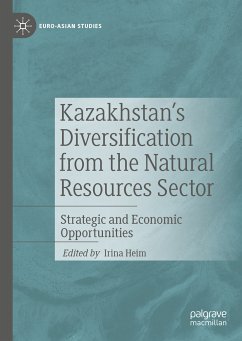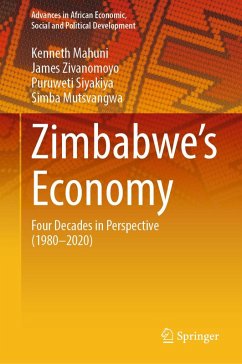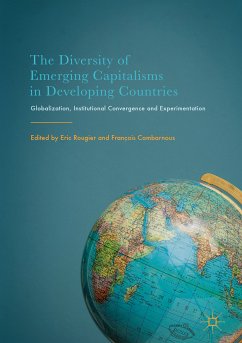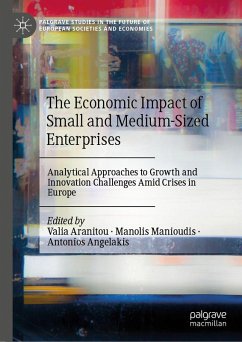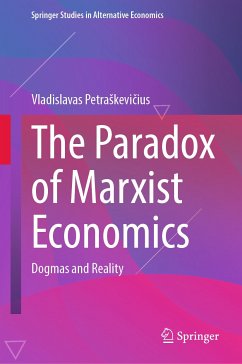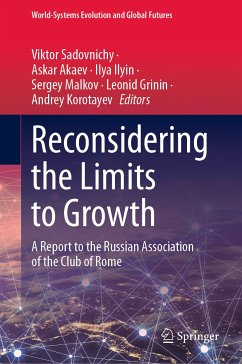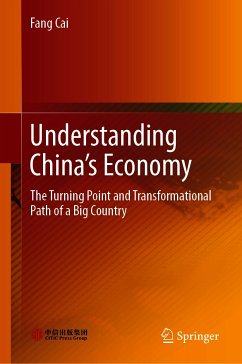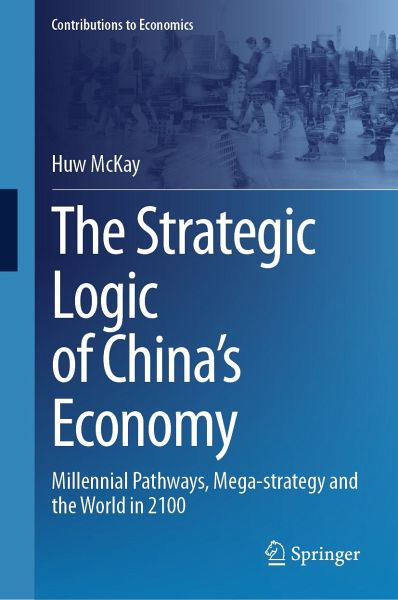
The Strategic Logic of China's Economy (eBook, PDF)
Millennial Pathways, Mega-strategy and the World in 2100
Versandkostenfrei!
Sofort per Download lieferbar
88,95 €
inkl. MwSt.
Weitere Ausgaben:

PAYBACK Punkte
44 °P sammeln!
This book reviews China's strategic pathway over the last 1000 years and considers its prospects for ascending to high-income status by the end of the 21st century. It analyzes why, although China's chances of joining the global core are sound, they are not outstanding; in addition, it faces mounting challenges, internal and external alike. The argument is presented in the framework of dynamic-strategy theory, which is expounded here in novel form. This exposition includes a wide ranging survey of global history, with a focus on the development of the industrialisation paths of the major econo...
This book reviews China's strategic pathway over the last 1000 years and considers its prospects for ascending to high-income status by the end of the 21st century. It analyzes why, although China's chances of joining the global core are sound, they are not outstanding; in addition, it faces mounting challenges, internal and external alike. The argument is presented in the framework of dynamic-strategy theory, which is expounded here in novel form. This exposition includes a wide ranging survey of global history, with a focus on the development of the industrialisation paths of the major economies of today, including a detailed study of Japan's long-run strategic pathway.
The book's closing section presents a scenario-based discussion of China's potential place in the world in 2100. The analysis implies that China's zenith is likely to be reached slightly before mid-century, after which its relative economic scale will likely decline. Beyond that generalfinding, the scenarios investigate the wide range of plausible outcomes that China may experience: a range that the author contends is much wider for China than for nations under-pinned by less complex political-economies. Given its scope, the book will appeal to scholars of history, economics, geopolitics and sinology, and to anyone interested in learning about China's economic prospects at a time of increasingly heated ideological and empirical debates.
The book's closing section presents a scenario-based discussion of China's potential place in the world in 2100. The analysis implies that China's zenith is likely to be reached slightly before mid-century, after which its relative economic scale will likely decline. Beyond that generalfinding, the scenarios investigate the wide range of plausible outcomes that China may experience: a range that the author contends is much wider for China than for nations under-pinned by less complex political-economies. Given its scope, the book will appeal to scholars of history, economics, geopolitics and sinology, and to anyone interested in learning about China's economic prospects at a time of increasingly heated ideological and empirical debates.
Dieser Download kann aus rechtlichen Gründen nur mit Rechnungsadresse in A, B, BG, CY, CZ, D, DK, EW, E, FIN, F, GR, HR, H, IRL, I, LT, L, LR, M, NL, PL, P, R, S, SLO, SK ausgeliefert werden.



